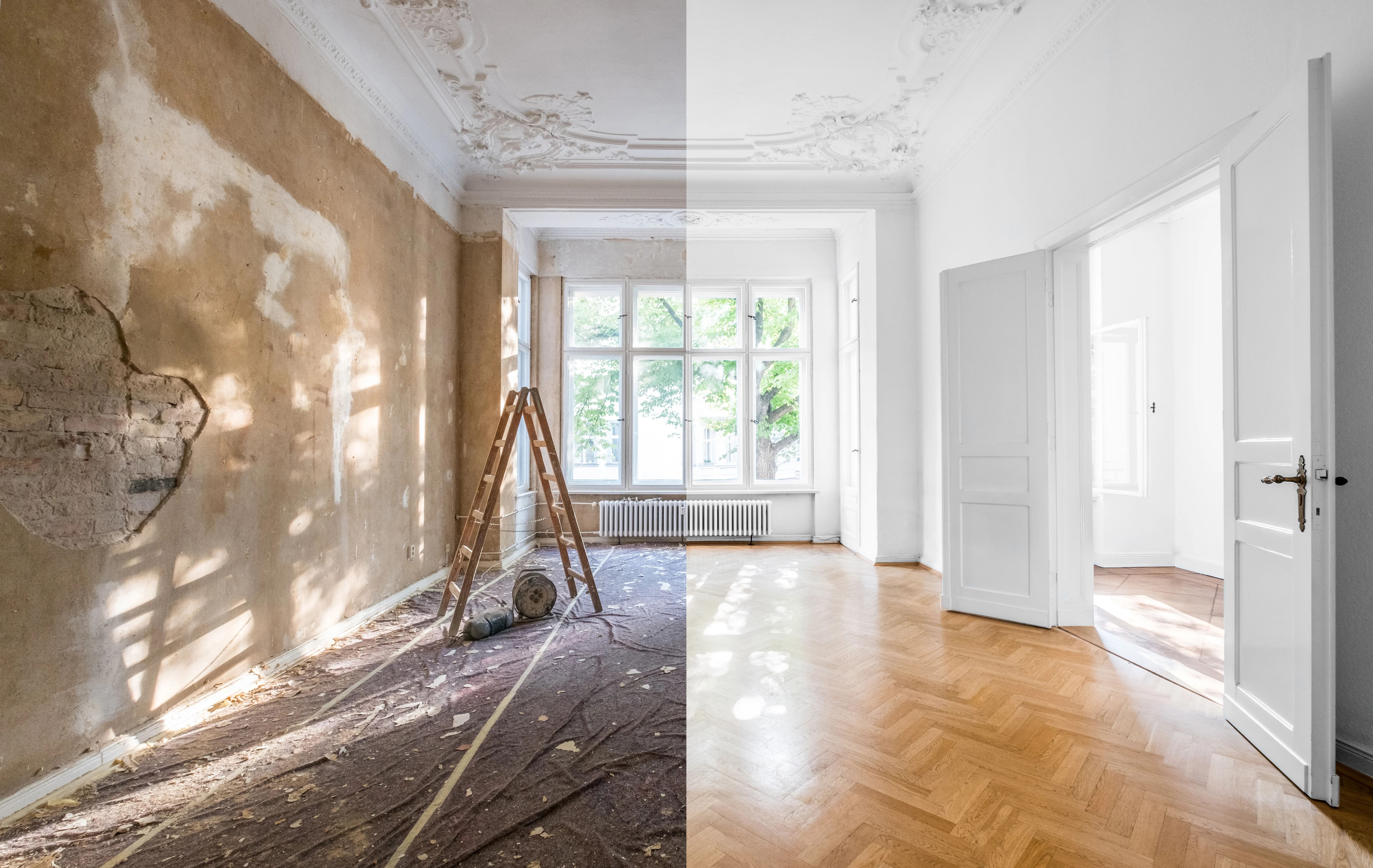Invest in a quality contractor.

You may love a bargain, but you often get what you pay for when it comes to construction. When hiring a contractor, it’s important to do your research and make sure their reputation precedes them. Know exactly what questions to ask, communicate clear expectations, and always get a written estimate. When shopping around, there are signs of quality you can look out for as well as potential red flags.
If your renovation includes major work, ask your contractor if they offer a builder’s home warranty, just in case something goes wrong after the job is done.
Know where to hunt for real estate.
Whether you’re fixing up an old house to live in or are looking for multiple properties to flip, here are a few ways to find them.
- Look for “short sale” or “real estate owned (REO)”. A short sale means the seller is selling the house for less than they own on their mortgage. REO means that the house was foreclosed by the bank. Both of these types of home sales are typically priced below market value. Just be prepared—sometimes these sales don’t include inspections.
- Hunt down foreclosure auctions. Foreclosure auctions are a little like playing the lottery: there’s the potential of taking ownership of an amazing piece of property for dirt cheap. The problem is because it’s an auction, you rarely get to see the house before buying. Another risk of auctions is they usually only take cash. If you go this route, make sure to hire a real estate agent that specializes in foreclosures.
- Keep an eye on how long a house has been on the market. In many real estate markets, if a house has been for sale for a long time, there’s usually a reason. This could indicate the house is a fixer upper.
If you’re new to real estate and are on the lookout for finding your dream home, here are some tips for first-time home buyers.
Utilize all of your financial options.
If you want to purchase a fixer-upper home but don’t have enough in your budget for renovations after your down payment, you still have options. Some lenders offer fixer-upper mortgages, which can roll the cost of the renovations and the house itself into one payment.
With a fixer-upper loan, the money for the renovations is held in an escrow account and doled out as needed. There are usually even allowances in case you go over budget. This type of loan may come with additional fees, so make sure you factor those in when deciding if buying a fixer-upper home is right for your financial situation.
Check out more information on mortgage approval and what you can do to expedite the process.
Re-think your living arrangements.
Can you live in your new home while it’s being renovated? Sometimes, yes. But will it be a pleasant experience? Maybe not.
It may seem logical to live on-site during renovation—you’ll be there for any questions, you’ll save money on rent or avoid paying two mortgages, and you can spend your free time working on your DIY projects without having to travel back and forth. But living in a construction zone can be a nightmare. Depending on the scale of the project, you could experience days of no water, power, heat, or air conditioning.
It may be a good idea to have a secondary living option available just in case. The last thing you want is to grow to resent your new home before you’ve even had a chance to enjoy it.

When it comes to fixer-upper homes, staying on budget and planning ahead are key. After you’ve purchased your home, safeguard your budget by investing in a home warranty. American Home Shield has affordable home warranties for home buyers that can be your budget safety net for unexpected breakdowns of home systems and appliances.






